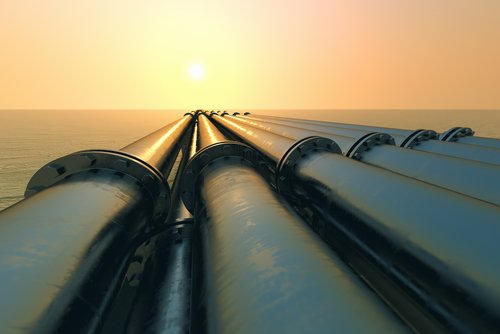Belgium, (Brussels Morning Newspaper) Bulgaria, Greece, Hungary and Romania agreed to upgrade the vertical gas corridor to connect Greece with Central Europe.
The move agreed on Thursday is part of the countries’ efforts to diversify supply of natural gas and strengthen their position in Europe’s energy grid, according to Reuters reporting on Thursday.
The four EU member states agreed to invest in gas infrastructure in 2016 to connect the south of Europe with the north, announcing plans to upgrade interconnections and boost transport capacity.
Bloc members are focusing on diversification of gas supply, as the bloc moves away from Russian energy imports in the wake of the war in Ukraine, and stepping up cooperation.
Operators from the four bloc members signed a memorandum of understanding on Thursday in Athens, noting in a statement that talks on economic and regulatory aspects of the plan will start in the coming period.
They pointed out that the agreement will stay in effect for three years and may be extended by one year.
Project to increase ednergy security
Maria Rita Galli, CEO of Greek gas system operator DESFA, pointed out that signing of the memorandum “is an important step towards the implementation of the Vertical Corridor, a project that will significantly contribute to the supply security of the wider region.”
She added that the corridor will strengthen the role of Greece and the wider region in Europe’s energy system.
ICGB, operator of the Gas Interconnector Greece–Bulgaria that came online in October, noted that the pipeline is an important part of the Vertical Gas Corridor.
ICGB’s annual capacity currently stands at roughly 3 billion cubic metres, with two ICGB senior executives pointing out that the pipeline will become more important once its capacity is increased.
“In coordination with DESFA, we have the opportunity to increase this capacity to up to 5 billion cubic metres per year,” they noted and predicted that the expansion will be completed in 2024.
The two executives pointed out that Gastrade is developing a floating liquefied natural gas (LNG) terminal near Alexandroupolis which should be completed in 2024 as well.
After Bulgaria refused to pay for Russian gas in roubles earlier this year, Moscow cut deliveries and Greece stepped in as the new supplier.




